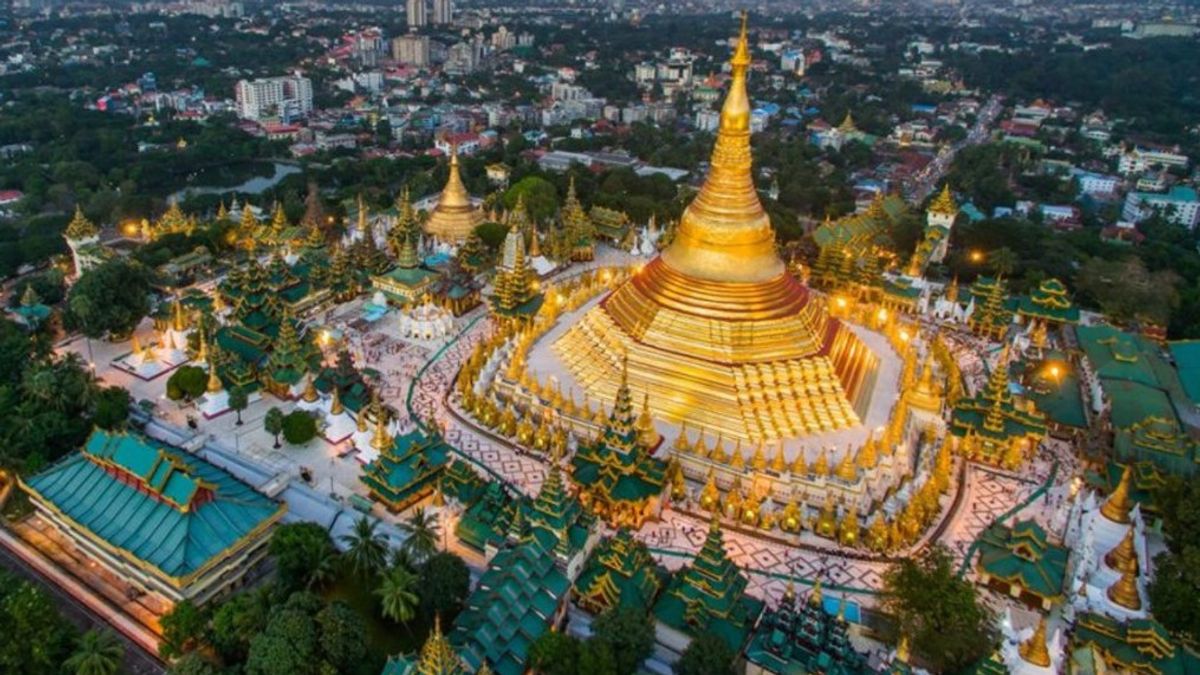JAKARTA- The Unitary Republic of Myanmar is a sovereign country located in Southeast Asia. Geographically, Myanmar is bordered by India and Bangladesh to the west, Thailand and Laos to the east, and China to the north and northeast.
The former capital city of Myanmar was located in Yangon. After that the military junta government moved the capital to Naypyidaw on November 7, 2005.
The country of Myanmar has a national anthem called Kaba Ma Kyei. The song is the official national anthem and the opening is sung in traditional Myanmar style.
Over time, Kaba Ma Kyei experienced a transition into a modern orchestra. The writer of the melody and lyrics of the song is Saya Tin, which was later adopted as the Myanmar national anthem.
Lyrics and translations of the song Kaba Ma KyeiThe following are the lyrics of the Myanmar national anthem written in Latin or roman letters:
Ga ba ma kyae, myan ma pyi,
Do bo bwa a mwae sit mo chit myat no bae.
Ga ba ma kyae, myan ma pyi,
Do bo bwa a mwae sit mo chit myat no bae.
Pyi daung zu go a thèt pae lo to ka kwè ma lae,
Da do byae da do myae do paing dae myae.
Do byae do myae let's go nyi zwa do da twae
Tan saung ba so lae do da (u) win bay a po tan myae.
TranslateThe translation of the lyrics above is:
Justice and freedom;
Has materialized in our country, our homeland.
For peace for all the people;
A country with a noble and fair policy,
That is our country, our homeland.
Let us swear loyalty
Forever protecting unity as a very valuable inheritance.
We love Myanmar to the end of the world,
The eternal legacy of our ancestors.
We will protect the unity even if we have to sacrifice our lives
Because this is our country, our homeland, and our own land
Let us unite for the benefit of our nation, our homeland.
Because that is a noble duty for our precious land.
Biography of the author of the melody and song lyrics of Kaba Ma KyeiSaya Tin is a songwriter originally from Burma. He was one of the three most famous pre-war composers.
Two other people, namely Nandawshae Saya Tin and Thahaya Saya Tin. He is known for his work entitled Kaba Ma Kyei, which was later used as the national anthem of Burma (Myanmar).
Tin was born in Mandalay, February 12, 1894 to Daw Thein and her husband, An Yaung. My Father Tin is a former official who served during the reign of the last Burmese King, Thibaw.
Tin has two siblings, one older sister and a younger sister who is also a sister. After completing middle school at the age of 17, Tin taught at a private school for the next three years. In his spare time, Tin plays concertina, explores the sounds and delves into traditional Burmese music.
My music career is TinIn 1918, Tin founded his private school, the Young Buddha Buddhist School in Mandalay. The school came to be known as YMB I Tin.
I, in Burmese means "teacher". His school band often performs for free at charities and weddings.
In 1930, Tin closed his school and moved to Yangon, where he recorded his songs and used them in films. Tin meets an old school friend, Thakin Ba Thaung and joins his political movement, Dobama Asiayone (We Burmese Association).
Tin composed Kaba Ma Kyei (Until the End of the World), the Burmese national anthem in 1930 with Ba Thaung which added patriotic lyrics. Tin performed the song for the first ceremony on the flat ground of the Shwedagon Pagoda at 5:00 p.m. on July 20, 1930.
After the ceremony, Tin was jailed by British officers who accused him of being subversive. In 1946, Tin was released. A year later, in 1947, the song was adopted as the Burmese national anthem and earned Tin the award of a thousand kyats.
On Independence Day, January 4, 1950, the Burmese government awarded him the title Wunna Kyawhtin (the beautiful-famous). Saya Tin died on August 8, 1950 due to tuberculosis (TB).
His body was cremated in Yangon. During his lifetime, Saya Tin has composed more than four thousand songs. That is the explanation of the history of the Myanmar national anthem.
Follow other domestic and foreign news only on VOI.id, Time to Revolutionize the News!
MEMORY OtherThe English, Chinese, Japanese, Arabic, and French versions are automatically generated by the AI. So there may still be inaccuracies in translating, please always see Indonesian as our main language. (system supported by DigitalSiber.id)













